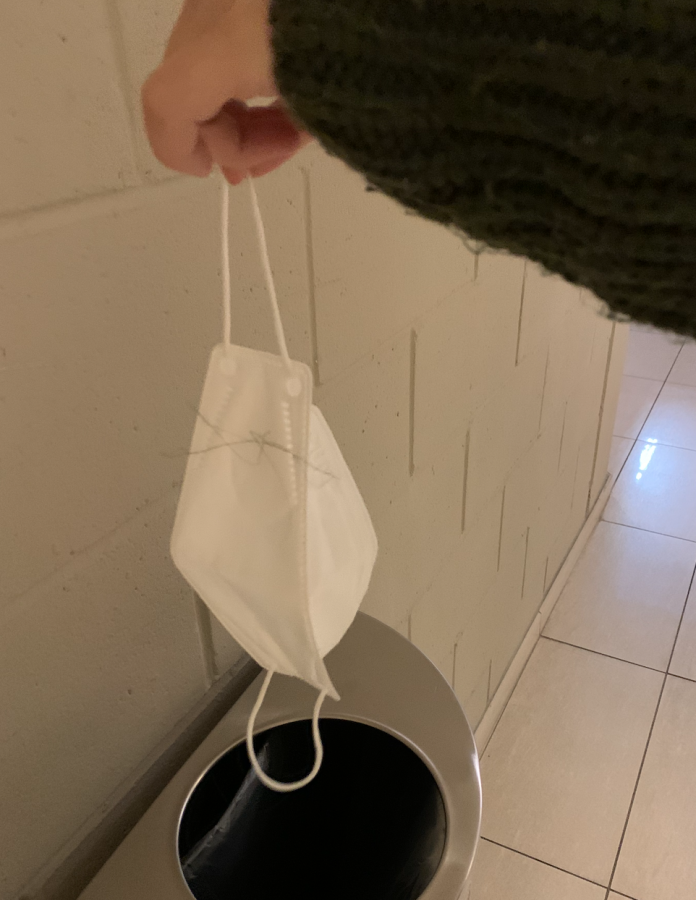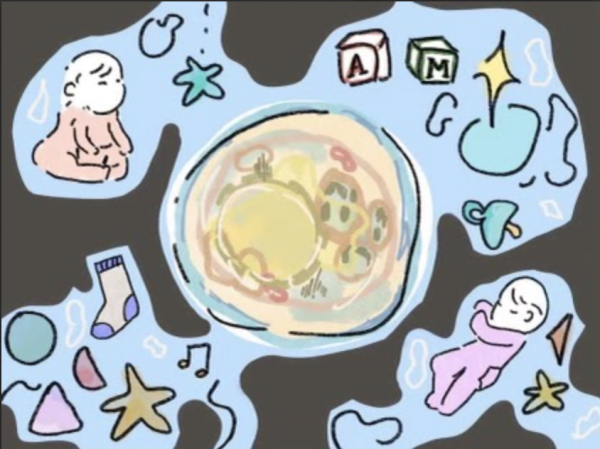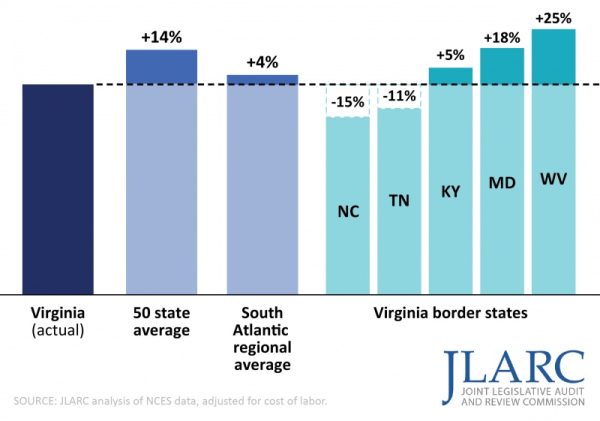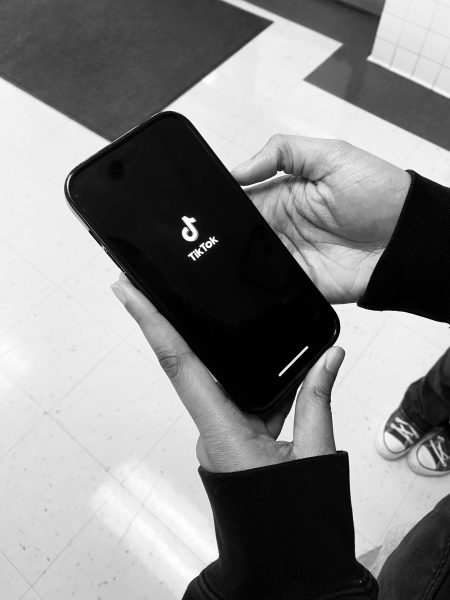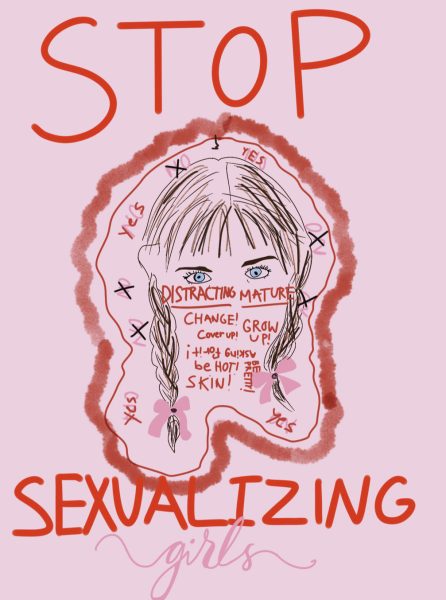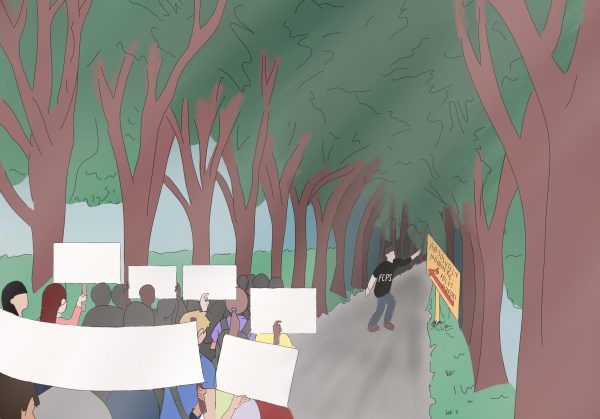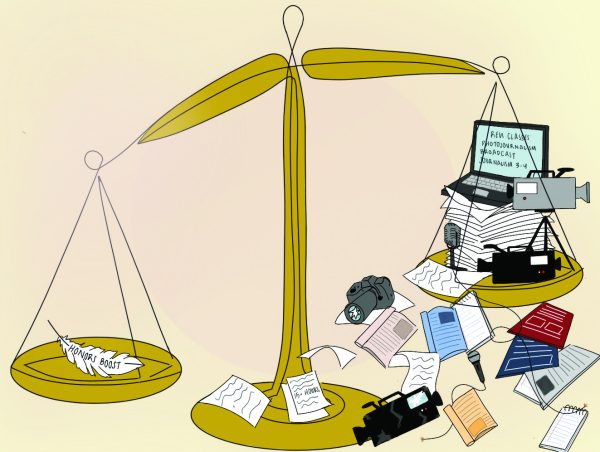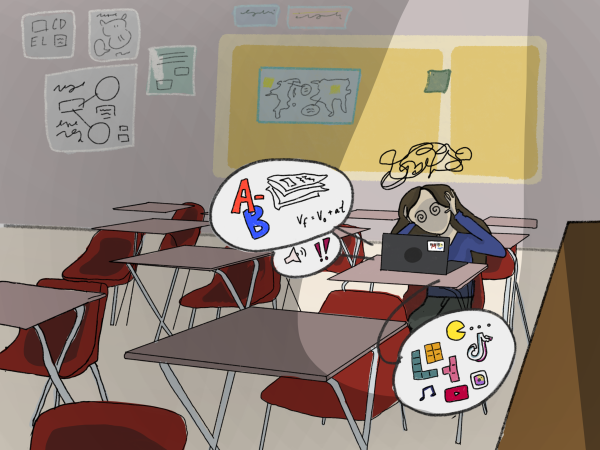Coronavirus: the unexpected environmental intruder
Environmental problems caused by COVID-19 are slowly rising to the surface and must be addressed
A mask is being thrown away after its use for a day. About 129 million face masks and 65 million plastic gloves disposed into the environment every month.
November 1, 2020
With the rise of an unexpected pandemic, people’s daily routines have changed dramatically. Not wearing a mask outside became an abnormality in our lives, and hand sanitizer became a daily essential.
“A lot of things changed this year,” junior Seoyoon Lee said. “We are now more accustomed to talking to our teachers through our computers.”
There have indeed been some dramatic changes in people’s daily lives. Not only masks, but other disposable materials like paper bags and take-out bags, have seen a significant increase in use due to safety precautions.
“We usually order food twice a week,” senior Jennie Moon said. “Because it is dangerous to eat the food with our masks off [at the restaurant], we frequently use a take-out service.”
Despite the convenience and the hygiene these disposable materials provide, they have a major effect on the environment. Disposable items like masks, gloves and take-out bags are usually made of plastic, which stays in the environment for hundreds of years. With the exponential increase in the use of plastic, the environmental problems we currently face have become even more complicated.
“Face masks can stay in the environment up to 450 years,” said Maria Gjerding, member of the Danish Society for Nature Conservation in an interview with DW News on Sept. 21.
The plastic thrown into waste grounds, seas, and other places affects the environment severely. Plastics in seas are especially lethal, building up inside marine animals and eventually killing them.
“As plastics break down, it combines with [toxic chemicals],” said David Attenborough, natural historian and environmentalist in his BBC documentary, Blue Planet II. “[They] are consumed by a vast number of creatures… marine life will be poisoned by [plastics and industrial chemicals] for many centuries to come.”
Of course, it is impossible to suddenly stop the use of disposable items, as materials like masks are now truly essential in our lives.
“There is no single, simple answer to this question,” Lee said. “We can’t stop people from getting take-out [because] obviously it is a safer option for most families”.
The increase of waste not only affects animals, but also affects the lives of people. The production of medical waste is another significant issue we face due to the spread of COVID-19.
Scientists ‘pinpoint fragments of Covid acid in waste water’.https://t.co/RkslJJv8xY
— STV News (@STVNews) October 23, 2020
According to the National Center for Biotechnology Information, Wuhan, which was at the center of the pandemic, had over 247 tons of medical waste produced during the “peak of the pandemic.”The amount was more than 6 times the amount of normal medical waste, and the government eventually had to establish a new section in the city to exclusively deal with the waste disposal caused by COVID-19.
Although personal health takes priority over other issues, we must keep the consequences of our actions in mind and make sure to be prepared for a future pandemic in a more environmentally friendly way.
“We should prepare for the future, making sure that the same problem does not occur again, like creating masks that could be broken down more quickly,” Lee said.



